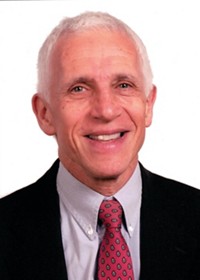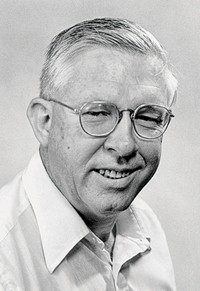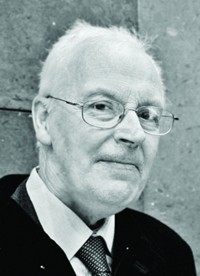Advertisement
Grab your lab coat. Let's get started
Welcome!
Welcome!
Create an account below to get 6 C&EN articles per month, receive newsletters and more - all free.
It seems this is your first time logging in online. Please enter the following information to continue.
As an ACS member you automatically get access to this site. All we need is few more details to create your reading experience.
Not you? Sign in with a different account.
Not you? Sign in with a different account.
ERROR 1
ERROR 1
ERROR 2
ERROR 2
ERROR 2
ERROR 2
ERROR 2
Password and Confirm password must match.
If you have an ACS member number, please enter it here so we can link this account to your membership. (optional)
ERROR 2
ACS values your privacy. By submitting your information, you are gaining access to C&EN and subscribing to our weekly newsletter. We use the information you provide to make your reading experience better, and we will never sell your data to third party members.
People
Jeremy Knowles Dies At 72
Eminent chemist and administrator unraveled enzyme mysteries
by Carmen Drahl
April 4, 2008
Distinguished biochemist Jeremy R. Knowles, a champion for the sciences at Harvard University, died on April 3 after a prolonged struggle with prostate cancer. He was 72.
Serving as dean of the faculty at Harvard from 1991 until 2002 and as interim dean in 2006–07, Knowles launched multiple cross-disciplinary initiatives to foster academic community. His tireless efforts reasserted Harvard's role as a leader in scientific innovation.
A professor of chemistry at Harvard for more than three decades, Knowles "was a wonderful, generous, and caring colleague," notes longtime Harvard colleague E. J. Corey, now a professor emeritus of chemistry. "It's fair to say that he was regarded by many as one of the world's most original and rigorous chemists working at the intersection of chemistry and biochemistry."
"He was a beloved instructor, colleague, and dean, and was a transformative figure at the university," says Andrew G. Myers, chair of Harvard's department of chemistry and chemical biology, a post Knowles held from 1980 to 1983.
"He was selfless in his devotion to the chemistry community," adds Cynthia M. Friend, a professor of chemistry at Harvard.
Knowles was born in Rugby, England. His formative years were spent hiding intermittently in kitchens and cellars during the blitz attacks of World War II. Following a stint as a pilot officer in the Royal Air Force, he attended the University of Oxford, where both his father and grandfather were professors. He graduated from Balliol College at Oxford, receiving his B.A. in 1959 and his doctorate in 1961.
Before joining the Harvard faculty, Knowles was a fellow and tutor of Wadham College, Oxford. He also held a postdoctoral fellowship at the California Institute of Technology, followed by stints as a visiting professor at both Yale University and Harvard. He joined the Harvard faculty as professor of chemistry in 1974 and was named Amory Houghton Professor of Chemistry & Biochemistry in 1979.
Knowles's work revolutionized the understanding of enzymes. He explored the physical organic basis for the specificity and rates of enzyme-catalyzed reactions, isolated and characterized enzyme-substrate reaction intermediates, and studied the stereochemical course of enzyme reactions and the evolution of protein function. He also tackled questions about the mechanism of bacterial resistance to β-lactam antibiotics such as penicillin.
Knowles was a recipient of many awards, including the American Chemical Society's Arthur C. Cope Scholar Award in 1989, the Alfred Bader Award in 1989, the Repligen Corp. Award in Chemistry of Biological Processes in 1992, and the Nakanishi Prize in 1999. He was awarded the Davy Medal of the Royal Society in 1991 and the Welch Award in Chemistry in 1995. He was appointed Commander of the Order of the British Empire during the Queen's Birthday Honours of 1993.
He was a fellow of the Royal Society, the American Academy of Arts & Sciences, and the American Philosophical Society, as well as a foreign associate of the National Academy of Sciences. He also served as a trustee of the Howard Hughes Medical Institute.
Knowles is survived by his wife, Jane; their sons, Sebastian, Julius, and Timothy; and seven grandchildren.






Join the conversation
Contact the reporter
Submit a Letter to the Editor for publication
Engage with us on Twitter